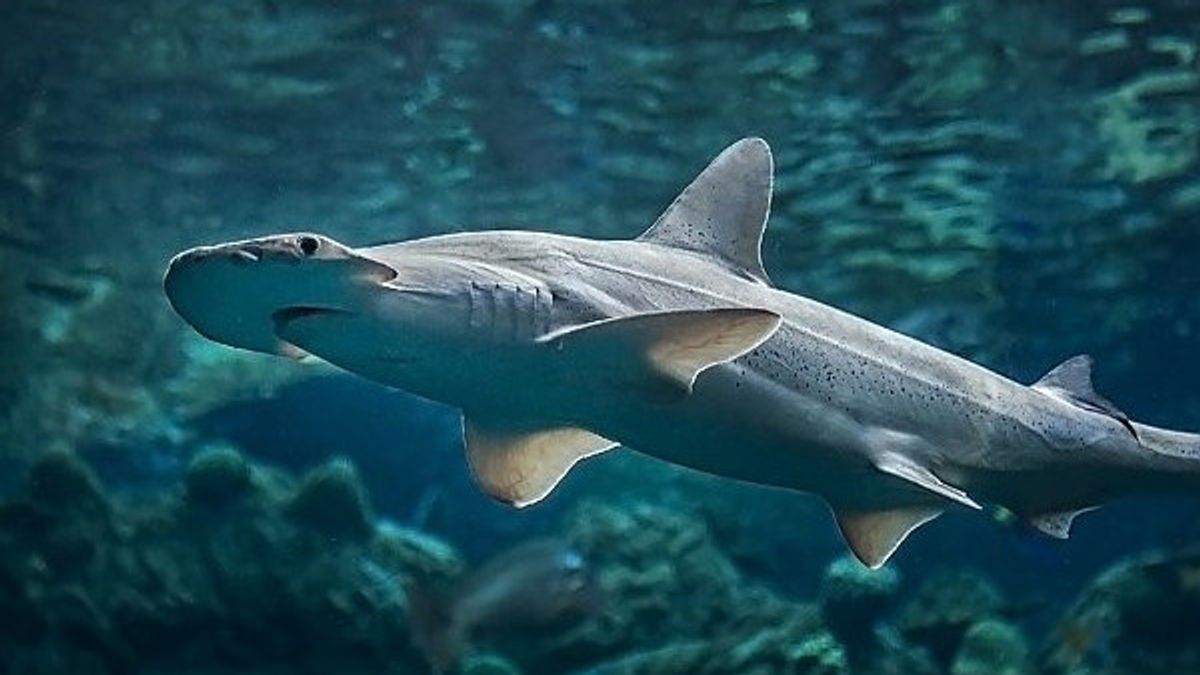JAKARTA - Sharks are known as one of the animals that regularly migrate year after year, traveling long distances, often through vast, empty bays, with no physical features to mark their way.
However, each year also sharks are able to traverse the same route back and forth according to the seasons, knowing the destination and return location is the same every year, making scientists wonder about this ability.
A team of researchers from Florida State University also tried to understand this, by examining the habits of the bonnethead shark, a type of hammerhead shark that lives along the American coast and returns to the same estuary every year.
"There are sharks that can travel 20,000 kilometers and end up in the same place," said Bryan Keller, a researcher on the team.
Using 20 sharks, the scientists exposed these sharks to magnetic fields that simulated locations hundreds of kilometers from where they were. When the synthetic field prompts the sharks to think they are south of where they really are, they begin to swim north as if prompted by the GPS.
More research is needed to find out exactly how sharks use these magnetic fields to pinpoint their location. And a way to see if the larger shark behaves in the same way.

The scientists on the team believe they will. According to Keller, it is highly unlikely that these sharks have evolved to respond to magnetic fields and that other sharks, some of which have traveled across oceans, have not.
Keller went on to say that their discovery would help preserve the sharks in their natural habitat, avoiding conflicts with humans and environmental damage.
Between 1970 and 2018, about 70 percent of marine sharks and rays disappeared, according to a study published in January 2021.
"The last 50 years have been devastating for global shark populations," said study co-author Nathan Pacoureau. The results of this study were published in the scientific journal 'Current Biology'.
To note, global fishing rates have doubled since 1950 and many sharks are trapped in nets. Others are being hunted on purpose.
Because sharks reproduce at a rate more similar to that of mammals than fish, the global population cannot keep up.
Therefore, deeper knowledge of shark migration patterns is needed to help protect this species from extinction.
The English, Chinese, Japanese, Arabic, and French versions are automatically generated by the AI. So there may still be inaccuracies in translating, please always see Indonesian as our main language. (system supported by DigitalSiber.id)













